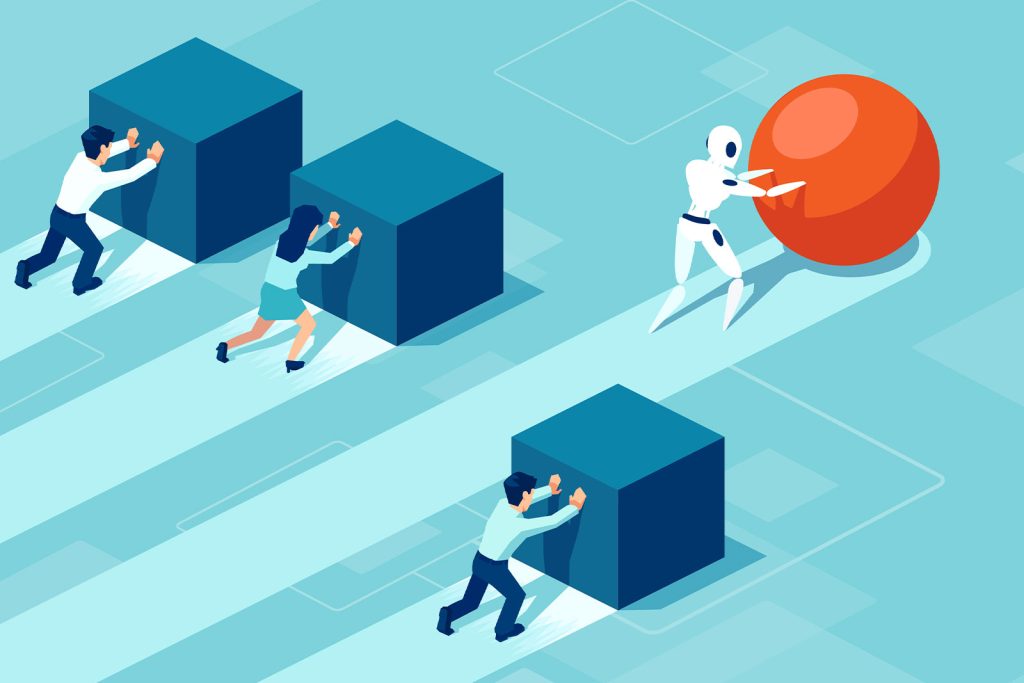We think predictions are important as they enable us to get a pulse on the market, understand the market trends and set the vision. I have focussed only on the Operational Intelligence market.
At a macro level, AWS CEO Adam Selipsky said it best when he shared at re:Invent that we’ve seen better times, we’ve seen worse times, but we’ve never seen such uncertain times. This is primarily due to the avalanche we are facing with GenAI, distributed applications, multi-cloud environments, the rise of edge computing and hybrid work environments.
1. Convergence of Data and AI
- Building up on on 2023 prediction of convergence of Operational Domains – Observability, Security, Networking and Application –
- 2023 was clearly the year of AI. GenAI ( and ChatGPT) democratized AI
- With the rise of AI, what became clear was GenAI was only as good as the Data at hand
- The Cisco AI Index which surveyed around 8000 customers, highlighted that only 14% customers were ready to implement AI when 97% were AI aspirant
- One of the major inhibitors was how to start with their Data
- 2024 will see massive Convergence around Data and GenAI and the rise of Data Platforms like Cisco’s Observability Platform. Data Lake Houses like Dynatrace Grail, Data Lakes for Operational Data,SnowFlake, Databricks, Microsoft Data Fabric, Google Dataplex for BI, etc.
- There will be some winning approaches around how Operational Data is stored and Cisco’s Observability Platform ranks pretty high, due to how it uses entity modeling and relationships on storing only relevant telemetry that matters.
2. Emergence of Modern Data Stack for Full Observability, AIOps & GenAI
We believe just like the Modern Data Stack for BI, it will be the dawn on “Modern Data Stack for Observability, AIOps and GenAI” with these five building blocks

- Data Fabric
- This can be loosely equated to zero-ETL in the BI stack, but is more involved as the number of integrations can be many and the Data Fabric needs to be a streaming data engine
- Data Fabric needs to support composability with the ability to run Telemetry / Observability pipelines and dynamically create data models and ingest telemetry.
- E.g – CloudFabrix’s Data Fabric for Composability, Contextualization and Modernization to OTEL
- Data Platform
- for efficient Telemetry storage
- E.g – Cisco’s Observability Platform
- Data Correlation and Visualization
- Ability to form data models (entity) relationships with Knowledge graphs and visualize using flow maps
- E.g Cisco Observability Platform
- Data Governance and Management
- Metadata cataloging, Data security, Lineage, API integration
- E.g CloudFabrix’s Data Fabric
- Data Orchestration and Automation
- Telemetry pipeline composability, scheduling etc.
- Service Blueprints
- Decoupling producers and consumers with multiple source and sinks
- E.g CloudFabrix’s Data Fabric
3. Domain-specific GenAI will need Domain-specific datasets
- GenAI has democratized AIOps and with the above 2 trends catching wind, we predict this year will experience significant adoption of AIOps.
- Data platforms will become more prevalent to consolidate domain specific datasets to train local LLM’s.
- Modern Data Stack will become paramount to generate exact context for domain specific LLM which are trained on local datasets
- GenAI is dependent on techniques like RAG and FineTuning. RAG will be more widely deployed, since they do not need labeled data like FineTuning.
- Prompt engineering with techniques like “Alexa Intents” or Semantic Routers will become more prevalent, as GenAI will be used for automating actions.
- E.g CloudFabrix “GenAI Intent based automation”
- Multi-modal LLMs become more prevalent.
- GenAI stacks (e.g AWS Bedrock etc.) will need to be operationalized with Observability, AIOps and Automation.
4. GenAI will catapult AIOps and Platform Engg. discipline
- Persona based Self- Service Assistants / Co-pilots which use Conversational queries to interact with operational data will make it easy for Citizen developers to build solutions.
- AIOps Operating Model
- By definition Platform Engg. gives DevOps teams a centralized platform for their tools and workflows.
- AIOPs and GenAI will enable these centralized platforms empowering DevOps teams to accelerate the delivery of applications and the pace at which they produce business value. Platform Engg. will thus improve developer experience and productivity by providing self-service capabilities with automated infrastructure operations.
- AIOps and Automation will increasingly be used for Day 0, Day 1, and Day 2 Operations
5. Boardroom & CxO’s will have FinOps, Sustainability & ESG mandates
- FinOps has been mostly restricted to the realm of cloud utilization and chargeback, however in reality an AIOps use case needs to have Financial accountability as highlighted by AIOps operating model
- FinOps extends beyond cloud to asset management – you cannot measure what you cannot see
- Asset Discovery, Asset capacity utilization, risk mitigation and compliance, tools consolidation, cost avoidance all contribute to Financial accountability and are interrelated.
- FinOps and Asset Management will aid Sustainability with Asset Management, Asset Analytics and power and carbon utilization
- ESG – Environmental, Social and Governance will become table stakes for FinOps and Sustainability
6. Rise of Industry Clouds and how to Operationalize them?
- Telco cloud – This year will see several Telco clouds as they are witnessing more competition from hyperscalers and with 5G adoption
- Industry 4.0 will see increasing adoption of IoT across automotive and manufacturing floors.
- Observability, AIOps and GenAI will become paramount to gain visibility and operational intelligence
- FinTech and Healthcare being regulated industries will approach
- Observability, AIOps and automation cautiously, but will soon see the benefits as GenAI and domain-specific LLM’s mature
Thanks for reading, pls. Share your thoughts. We will evaluate these predictions towards the end of 2024!
Happy New Year!





